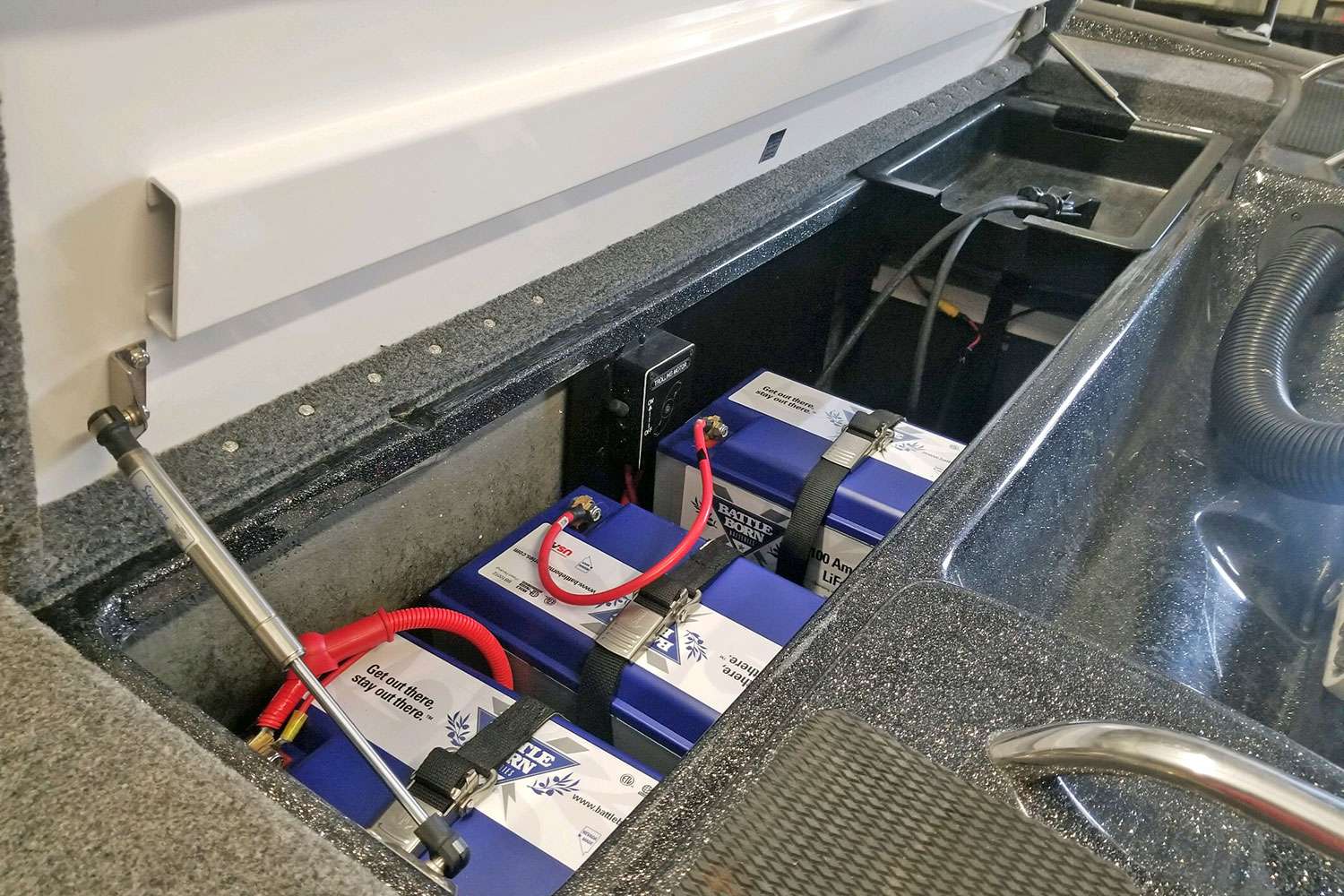
Lithium batteries have considerable advantages over conventional wet lead acid, absorbed glass mat (AGM) and sealed Gel marine deep cycle batteries. The most significant of these benefits is longer lasting power.
A typical setup for a 36-volt trolling motor is to run three 12-volt marine batteries in a series to achieve 36 volts. Three 100 Amp Hour (AH) lithium batteries in a series will power a trolling motor running at the same speed roughly twice as long as a series of three conventional 100 AH marine batteries.
Conventional marine batteries lose voltage as they are drained, which causes a trolling motor to gradually lose thrust. Once the batteries are drawn down to 50 percent they can no longer produce the voltage needed to power the motor. They still have 50 percent of their capacity, but as far as your trolling motor is concerned, they’re dead.
And, when a conventional marine battery is drained to 50 percent or below, it will never return to its full capacity, no matter how long it is charged.
Lithium batteries, on the other hand, do not lose voltage as they are drawn down. And, they may be drained to nearly 100 percent before the voltage drops. This is why they can provide power twice as long and keep your trolling motor running at full strength throughout that time.
Also, a discharged lithium battery suffers no harm and can be recharged to its full strength. And, a lithium battery may be discharged and charged five or more times than conventional marine deep cycle batteries. Add to this that lithium batteries weigh about half that of conventional deep cycle marine batteries and that they charge in a fraction of the time.
Over the past two seasons, South Carolina Elite series rookie Patrick Walters has run four Relion 12-volt 100 AH lithium batteries in his boat. Three of them power his 36-volt trolling motor and the fourth serves as his cranking battery. He claimed that his cranking battery can power his livewells, five graphs and radio all day with no problem.
“I’ll never again run lead acid batteries,” Walters said. “My Relion batteries cut 120 pounds out of the back of my boat. I’ve run my trolling motor in a current at 80 percent all day long and it was just as strong at the end of the day as it was after takeoff. The batteries charge in, like, 2 hours and they’ll last for over 7 years.”
The bottom line
The big drawback with lithium batteries is their high price tag. The Relion batteries in Walters’ boat cost $1,200 each. That means you’ll be out $3,600 to power a 36-volt trolling motor. Several other companies now offer lithium deep cycle marine batteries and their prices vary considerably.
You can purchase three 12-volt 100 AH LiFePO4 lithium batteries from the Lithium Battery Store for $2,583, which is the low end of the spectrum. LiFePO4 stands for Lithium Iron Phosphate, which is the safest of the technologies being used to make lithium batteries. Lithium batteries designed for marine use employ LiFePO4 technology.
Lithium Pro is at upper price range for 12-volt lithium batteries. Three of their M3110 12-Volt 110 AH batteries cost nearly $6,000.
However, professional anglers who run Lithium Pro batteries employ a less expensive option. It is a kit that consists of two Lithium Pro M3140 36-volt 40 AH batteries (rigged parallel for 80 AH) and a special lithium battery charger for $4,688.
The least expensive product I’ve found for delivering 36-volts of lithium power is the 36-volt 60 AH battery from the Lithium Battery Store. Its price tag is $1,243, which is about twice what you’d pay for three top line conventional deep cycle marine batteries.
This 36-volt battery won’t keep your trolling motor running much longer than three conventional 110 AH marine batteries in a series, but it will maintain full voltage whether it is fully charged or nearly drained. And, at 50.7 pounds, it will reduce weight in your boat by over 100 pounds.
The Lithium Battery Store stressed that their batteries must be charged with chargers dedicated for lithium batteries. They sell lithium chargers for their batteries starting at $79.
Not all lithium marine batteries makers require that you use lithium battery chargers. Most 12-volt lithium marine batteries on the market today can be charged with any charger that is rated for AGM or gel batteries. However, even these lithium batteries will charge faster and be more fully charged if you use a dedicated lithium charger.
When you extrapolate the cost of lithium batteries over their long life span, they are no more expensive, and possibly less expensive per hour of use, than conventional deep cycle batteries.
Is it worth putting the money up front for lithium batteries? That depends on your budget and how important it is for you have longer lasting power and the other advantages that lithium batteries offer.
Lithium Battery Companies
Lithium Battery Store
Lithiumbatterystore.com
(813) 320-5689
info@lithiumbatterystore.com
Battle Born Batteries
battlebornbatteries.com
info@battlebornbatteries.com
(855) 292-2831
Lithium Pros
Lithiumpros.com
(865) 688-2083
info@lithiumpros.com
Mastervolt
mastervolt.com
Relion
Relionbattery.com
(844) 385-9840
Smart Battery
smartbattery.com
Sales@smartbattery.com
(855) 465-4844
Trojan
trojanbattery.com
(800) 423-6569





